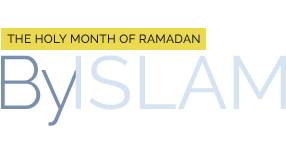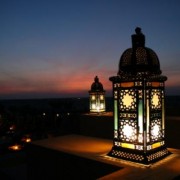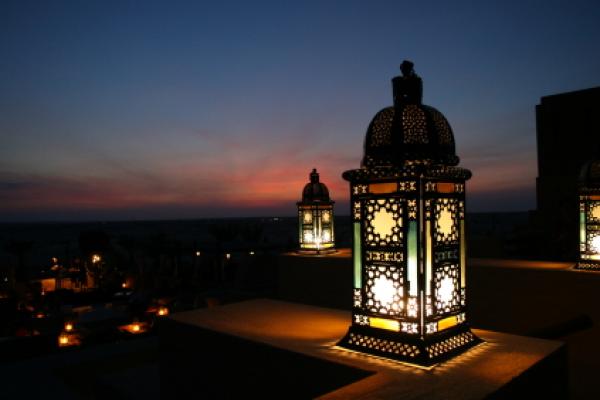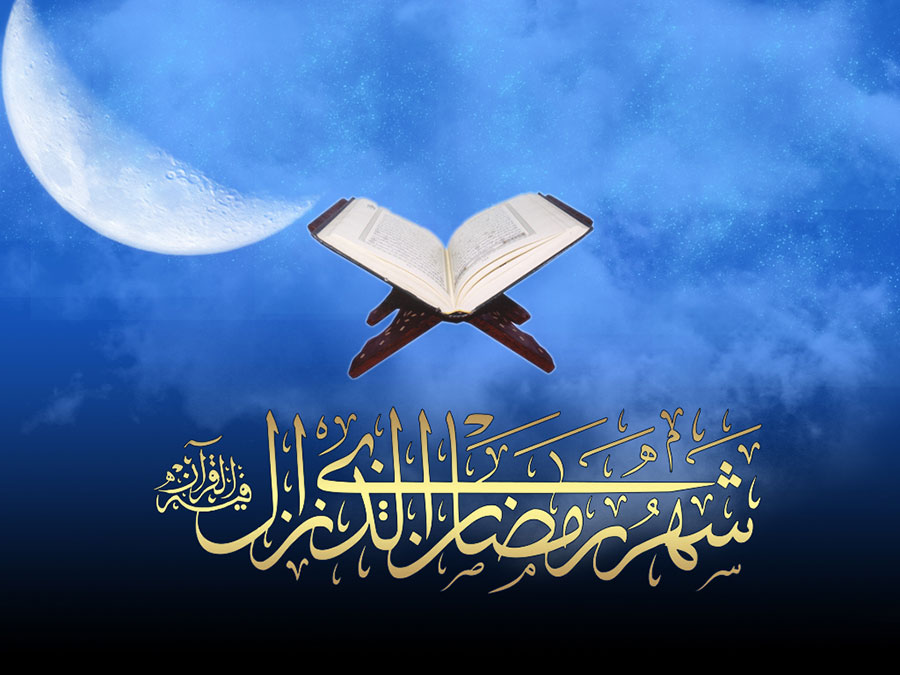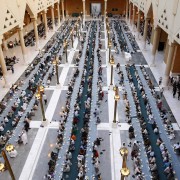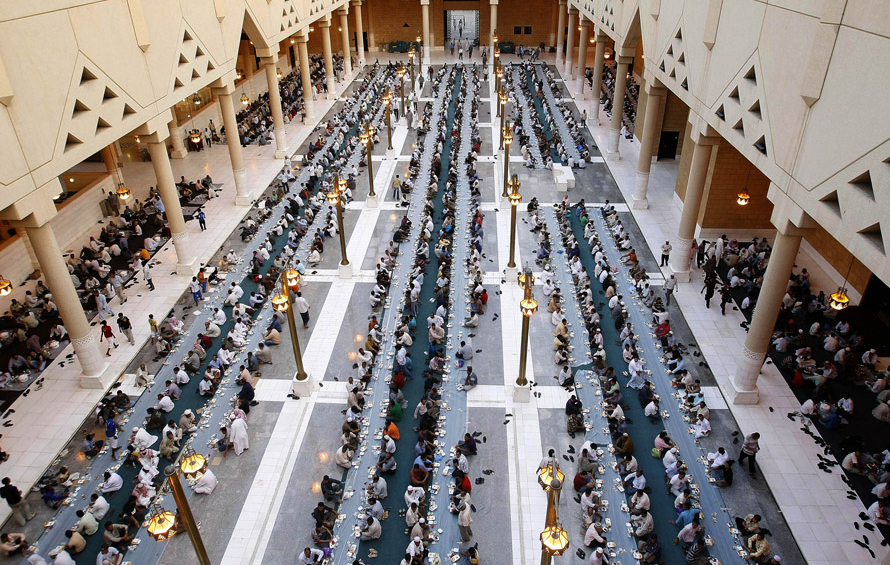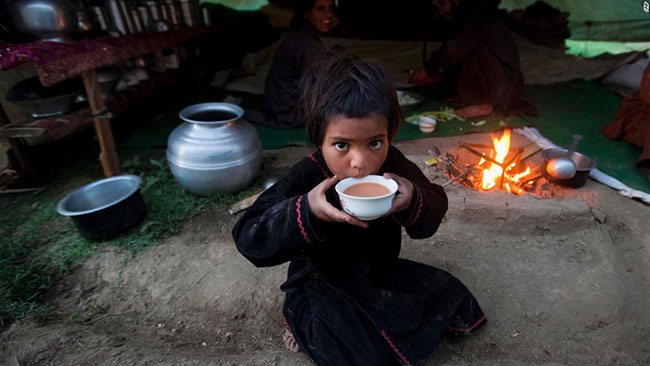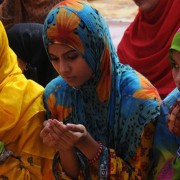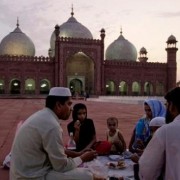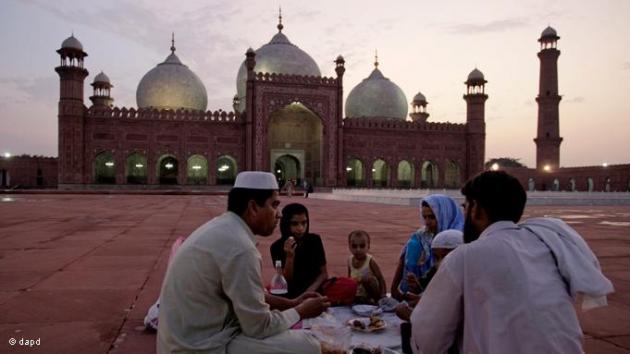What Is the General Fast?
 The general fast is the fast that is obligatory on every one who meets the conditions of fasting. Basically it is to refrain from eating, drinking, copulation, and all those things mentioned by the esteemed jurists in their books of Divine law. To abstain from some of the basic necessities is really a challenge, but its result is so rewarding that it can determine the eternal salvation of the human being. There is a universal law Almighty Allāh mentions in the Qur’ān which despite its brevity reveals a world of meaning. After excusing the traveler and ailing one from fasting in this holy month and allowing them to fast after the holy month, He says:
The general fast is the fast that is obligatory on every one who meets the conditions of fasting. Basically it is to refrain from eating, drinking, copulation, and all those things mentioned by the esteemed jurists in their books of Divine law. To abstain from some of the basic necessities is really a challenge, but its result is so rewarding that it can determine the eternal salvation of the human being. There is a universal law Almighty Allāh mentions in the Qur’ān which despite its brevity reveals a world of meaning. After excusing the traveler and ailing one from fasting in this holy month and allowing them to fast after the holy month, He says:
يُرِيدُ اللٌّهُ بِكُمُ الْيُسْرَ وَلاَ يُرِيدُ بِكُمُ الْعُسْرَ
“…God desires ease for you, and He does not desire hardship for you…”
Although this clause is brought after a particular case, it should be known that it applies in every dimension of human life. The ambiguity that remains however is that ‘what is the definition of ‘yusr’ (ease), and whether ‘one who is healthy’ does not feel the pangs of hunger and thirst. To respond to this query, we should look at the following verse:
فَإِنَّ مَعَ الْعُسْرِ يُسْرًا. إِنَّ مَعَ الْعُسْرِ يُسْرًا
“For indeed ease accompanies hardship; Indeed ease accompanies hardship.”
Most commentators, appreciating the lexical intricacy involved in the verse say that ‘difficulty’ is interlinked with two kinds of ease- ease in this world and ease in the Hereafter. Or, more accurately, ease in this world, and ease in the realm beyond; the latter, due to our limited comprehension cannot be fathomed, save by one who is endowed with the penetrating sight mentioned in the following verse of Sūrat Qāf:
لَقَدْ كُنْتَ فِي غَفْلَةٍ مِنْ هٌذَا فَكَشَـفْنَا عَنْكَ غِطَاءَكَ فَبَصَرُكَ الْيَوْمَ حَدِيدٌ
“You were certainly oblivious of this. We have removed your veil from you, and so your sight is acute today.”
Some traditions clearly state that Paradise can be achieved (only) through the pains and difficulties of worship in this world. The Holy Prophet (s) is reported to have said:
حُفَّتِ الْجَنَّةُ بِالْمَكَارِهِ، وَحُفَّتِ النَّارُ بِالشَّهَوَات.
“Paradise is enveloped by difficulties and Hell Fire is enveloped by desires.”
Imām ‘Alī (‘a) is reported to have said in a lengthy tradition:
…وَاللٌّهِ إِنَّ صَائِمَكُمْ لَيَرْتَعْ فِي رِيَاضِ الْجَنَّةِ، تَدْعُو لَهُ الْمَلاَئِكَةُ بِالْفَوْزِ حَتّى يُفْطِرَ.
“I swear by Allāh, surely the fasting one among you enjoys in the gardens of Paradise, and the Angels pray for his success until he breaks his fast.”
Observe the tone of the tradition: Imām ‘Alī (‘a) swears when he informs his true followers about their state when they fast. Many of those who sincerely fast do enjoy these stations in Paradise while they fast, but the curtains that veil them from perceiving the higher realms of existence do not allow them to appreciate this reality. If the curtains were lifted they would witness their exalted state while they still reside in this mortal world.
In the introduction to his anthology ‘Shahrullāh fī al-Kitāb wa al-Sunnah’, when explaining the kind of Divine Banquet that believers should anticipate in the holy month of Ramadān, Hujjat al-Islam Muhammadī Ray Shahrī quotes al-Risālah al-Majdiyyah of Shaykh Ridā al-Isfahānī, where the latter explains the kind of Divine Repast that the believers are invited to. At one point he says:
Indeed I have heard several times and repeatedly from one who is closest to me in terms of relationship and kinship6 saying: ‘ I was busy reciting the well-known Ziyārat Amīn Allāh’ in the holy sanctuary in Najaf, and when I reached the verse ‘wa māwā’id al-mustat‘īmīna mu’addah” (and the banquets of those who seek sustenance are ready) and reflected over its meaning and thought about it, I was suddenly made to see a banquet on which lay different kinds of food and drinks, which I had never thought of, and I was eating from them, and in the course of that state I was contemplating about an Islamic ruling. Surely it is an amazing state which renders one perplexed! The truth is that this is the reality of [Paradisal] food, which does not break the fast…’
Al-Isfahāni later continues saying:
ولا تظنن أنّ تعبيرات هذا العبد هي من قبيل خيالات الشعراء وأوهامهم، أو من شطحيات غلاة المتصوفة، فحاشى أن أتجاوز لسان الكتاب والسنة، أو اتخطى في معتقدي غير ما جاء به الله والنبي وأمر به، وإنما المقصود هو قول الله نفسه في سورة “هل أتى” حيث يقول سبحانه: وَسَقٌهُمْ رَبُّهُمْ شَرَابــاً طَهُوراً
“Do not think that the expressions of this servant resembles the imaginations of the poets and their vain ideas or the theopathetic utterances (shatahiyyāt) of the extremist so-called sūfīs (mutasawwifah). I dare not transcend the bounds of the speech of the Book of God and the Sunnah, or adopt a course in my belief that is other than what Allāh and His Messenger brought and ordered [us to follow]. What I only mean here is the word of Allāh in chapter ‘Hal Atā’ where Allāh says:
وَسَقَاهُمْ رَبُّهُمْ شَرَابًا طَهُورًا
“…and their Lord made them drink a pure drink.”
Therefore despite the apparent hardship of fasting, ‘the ease that it accompanies’ is inexpressible. Those endowed with deep insight also term hunger as the ‘the clouds from which rains of wisdom heavily fall’. In his poetic masterpiece of Islamic laws & their secrets called Nibrās al-Hudā, Mullā Hādī Sabzawāri says:
وَالْجُوْعُ لِلْحِكْمَةِ مُزْنٌ مَاطِرٌ.
“And hunger is a rainy cloud of wisdom.”
Source: A Short Treatise on The Divine Invitation; wriiten by Muhammad M. Khalfan
